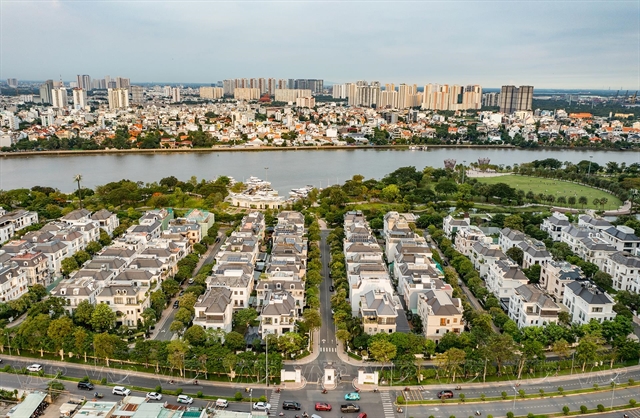Up to 2,608 newly foreign-invested projects were licensed in 10 months, surging 66 per cent against last year's same period.

New foreign investment registered in Việt Nam in the first 10 months of this year reached over US$15.29 billion, up 54 per cent year-on-year and marking a record high, a report from the Foreign Investment Agency (FIA) has shown.
Up to 2,608 newly foreign-invested projects were licensed in 10 months, surging 66 per cent against last year's same period.
The report said that foreign investment inflows into the country also saw a yearly rise of 14.7 per cent to over $25.76 billion in the period.
Of the total, over $5.33 billion was added to 1,051 existing projects. Though the additional capital fell 39 per cent, the project number still increased 19.4 per cent from a year earlier, showing investors were confident in Việt Nam’s investment climate, so they decided to expand their projects.
Meanwhile, foreign investors spent over $5.13 billion on contributing capital to and purchasing shares of domestic companies via 2,836 transactions, up 35.4 per cent and down 5.4 per cent, respectively.
During the period, disbursement of foreign investment hit $18 billion, up 2.4 per cent year on year, according to the report.
The processing and manufacturing industry lured the lion's share of foreign investment with nearly $18.84 billion, accounting for almost 73.1 per cent of the total and rising 45.8 per cent year on year.
Real estate came next with nearly $2.14 billion or 8.3 per cent, down 44.8 per cent. Finance and banking followed with about $1.54 billion, up 61.4-fold, and wholesale and retail with approximately $907 million, up 6.3 per cent.
The processing and manufacturing also ranked first in terms of new projects (32.8 per cent of the total) and those with additional capital (54.4 per cent). Meanwhile, the wholesale and retail sector recorded the biggest number of capital contribution and share purchasing transactions (41.6 per cent).
Six traditional investment partners of Singapore, Japan, mainland China, Taiwan, Hong Kong and South Korea accounted for 81.7 per cent of the country's total investment capital from January to October.
Of them, Singapore ranked first with more than $4.65 billion, making up over 18 per cent of the total and declining 13 per cent.
South Korea followed with nearly $3.93 billion or equivalent to 15.2 per cent and rising 0.5 per cent, and Hong Kong with nearly $3.54 billion or over 13.7 per cent and rising almost 2.6-fold.
The report added that China took the lead in the number of new projects, accounting for 21.7 per cent of the total. At the same time, South Korea ranked first in terms of projects with additional capital (25.7 per cent) and capital contribution and share purchasing transactions (28.2 per cent).
Quảng Ninh Province attracted the most capital with nearly $3.09 billion, accounting for nearly 12 per cent and increasing 41.3 per cent from a year earlier. Hải Phòng City stood second with over $2.8 billion, accounting for 10.9 per cent and surging 2.14-fold, followed by Hà Nội, HCM City, and Bắc Giang Province.
HCM City was the best performer in attracting new projects (38 per cent), those with additional capital (25.3 per cent), and capital contribution and share purchasing transactions (66.6 per cent), the report noted.
During a meeting with foreign investors in Hà Nội this month, Prime Minister Phạm Minh Chính said Việt Nam would continue to build a safe, transparent and highly competitive business and investment environment, enabling businesses and investors, including foreign ones to operate for a long term in the country.
PM Chính asked ministries, sectors and localities to continue effectively implementing policies and laws regarding the improvement of investment and business environment, while reviewing, adjusting and supplementing foreign cooperation policies to suit the reality, and listening to the ideas of businesses and investors, including foreign ones, to settle all arising problems.
He proposed that the business community continue to build long-term, sustainable and environmentally friendly business strategies, reforming their production and business models towards a green economy, digital economy, circular economy, knowledge economy, and climate change response.
"The success of investors is the success of Việt Nam itself, everyone wins and no one is left behind," he said. — VNS





